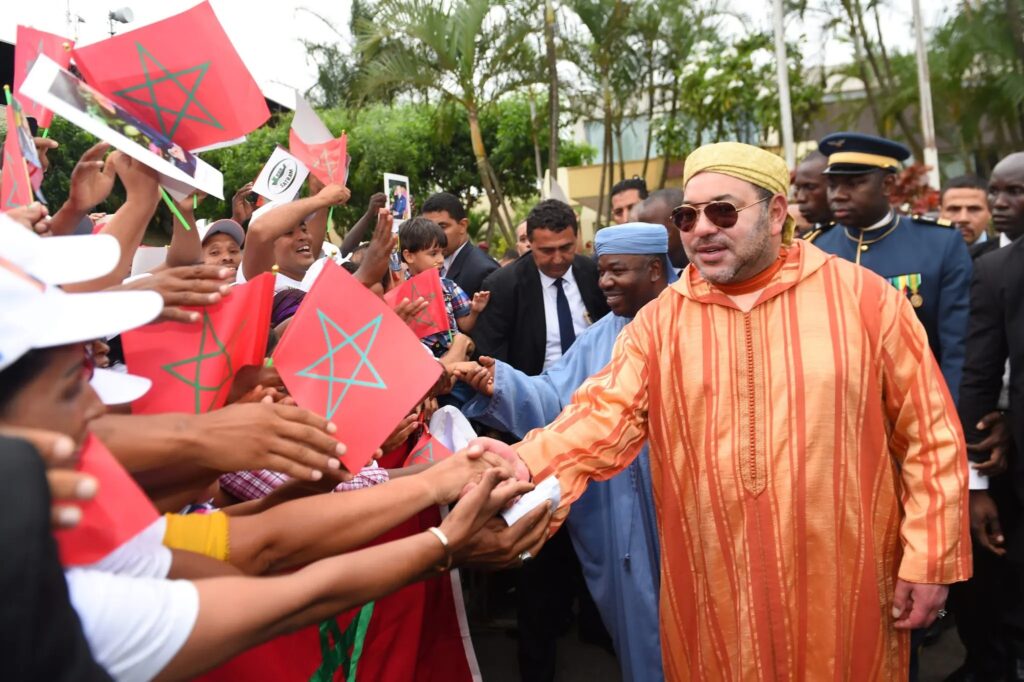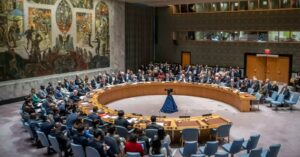Morocco in Africa: Investing in Development as an Alternative to the Logic of Guardianship and Hegemony

The African continent is witnessing major transformations that have pushed economic policies beyond traditional bilateral relations to become a tool for reshaping regional and international influence.
In this context, Morocco stands out as an effective model that relies on investment as a strategic tool to strengthen its African presence, through a development approach based on South-South partnership.
Since His Majesty King Mohammed VI's accession to the throne, Morocco's African policy has evolved into a comprehensive vision, embodied in numerous official visits and major projects in sub-Saharan African countries.
This policy aims to transform the Kingdom into a regional economic platform that attracts investments and connects the north and south of the continent.
This Moroccan vision is based on key elements, including political stability, infrastructure, and economic openness, supported by effective diplomacy with institutional and cultural influence. Moroccan investments in West Africa and the Sahel, particularly in the financial, energy, and telecommunications sectors, have made the Kingdom the second-largest investor on the continent. This dynamic is inseparable from long-term strategic objectives aimed at building an independent African depth for Moroccan interests. Through this, Rabat seeks to transcend the logic of dependency and establish balanced development relations based on mutual benefit. This strategy is gaining increasing importance in light of the accelerating international competition over Africa by powers such as China, Russia, and Turkey.
In this context, Morocco is relying on its geographic, cultural, and religious proximity, as well as the legitimacy of its achievements, to enhance its image as a reliable and sustainable partner. Its African policy has become a pivotal economic lever within an integrated development and security vision. It is a vision that seeks to build a more interconnected African space that is more independent in its development decisions. This approach reflects a strategic awareness of the continent's dynamics and the need for intelligent positioning within it. It also embodies a new vision for Morocco's regional role, based on effectiveness and pragmatism.
Overall, the Moroccan model represents an emerging experience in integrating economics and diplomacy within the African continent.
Moving from traditional diplomacy to economic diplomacy
Morocco's presence in Africa is no longer limited to classical diplomatic means. Rather, Morocco's relationship with Africa has witnessed a qualitative transformation since King Mohammed VI's accession to the throne. Positioning has become more effective through economic mechanisms than rhetoric alone. What is now called "economic diplomacy" is not limited to signing agreements; it translates into institutional and investment presence in vital sectors, generating political and moral capital that strengthens bilateral relations and consolidates a Moroccan network of influence across borders. This is evident in the numerous trade and financial agreements between Morocco and several African countries, particularly in the fields of banking, construction, and agricultural and industrial markets. This approach has served as a cornerstone in the Kingdom's rise to become, according to international institutions such as the International Finance Corporation (IFC), a major African investor. A report indicates that Morocco has become one of the largest African investors on the continent, with slight discrepancies in the rankings by year, but with an emphasis on increasing investment weight, particularly in West Africa.
Investment infrastructure linking Morocco to its African depth
Investment is not complete without a strong infrastructure that connects Morocco to its African roots. As part of this strategy, Morocco places great importance on developing an advanced infrastructure that makes it an ideal backbone for expansion into the continent. The Tangier Med Port, road and railway networks (Moroccan Railway Plan 2040), the Dakhla Atlantic Port project, and airports are among the most prominent tools for linking trade between North Africa and its southern hinterland. Strategic initiatives such as the Nigeria-Morocco gas pipeline reflect Rabat's desire to establish a long-term position within the African energy security system, within a vision governed by the balance of sustainability and integration.
Institutional presence in the heart of the continent
Morocco's institutional penetration into Africa is a pillar of its long-term economic strategy. The Kingdom has not limited itself to signing temporary agreements or projects, but has also sought to establish a permanent and effective presence through its public and private companies, which have expanded their activities into vital sectors in dozens of African countries.
In the financial sector, Morocco is one of the most prominent players, with branches of the two groups spread across the country. “Commercial International Bank“ The Banque Centrale Populaire operates in more than 20 African countries, providing banking services and financing to small and medium-sized enterprises, contributing to the integration of millions of citizens into the formal financial system. These institutions have also helped finance infrastructure, industrial, and agricultural projects, giving Morocco financial leverage that strengthens its political and economic presence simultaneously.
In the field of communications, it owns “Maroc Telecom“ It holds significant stakes in several African telecom companies, particularly in the West and Central African regions, making it a regional player in a competitive and strategic sector that reflects Morocco's expansion through technology tools and digital services.
In the agricultural sector and industries related to food security, the group has established OCP Phosphate has a position as a major supplier of fertilizers to several countries on the continent. It has even established factories and established local production partnerships, particularly in Nigeria and Ethiopia. This represents a shift in Morocco's role from a source of raw materials to an investor in industrial value chains within Africa itself.
This expansion not only reflects an economic desire, but also translates a strategic vision based on building Moroccan "soft economic power," enhancing the Kingdom's symbolic and institutional presence on the continent and establishing more sustainable relations, far removed from the logic of superficial exchanges or circumstantial relationships.
Royal Vision: Africa for Africans
Morocco's strategy in Africa is based on a deeply rooted royal vision, expressed by King Mohammed VI on numerous occasions, which believes that "Africa must trust in its capabilities" and is capable, through its own resources, of achieving its own renaissance, free from dependency. This vision calls for redefining the continent's relations with the world and with itself on new foundations, based on cooperation among the countries of the South and liberating the will to develop from the logic of economic hegemony or foreign political intervention. Instead of positioning itself in the conflicts of major powers or replicating models of dependency, Morocco proposes a solidarity-based development model based on win-win partnerships, transcending the traditional view that has reduced Africa to a supplier of raw materials or a consumer market. The royal vision does not merely condemn the logic of "neocolonialism," but seeks to establish a perspective that places African dignity and sustainable development at the heart of regional and international relations, making Morocco a reliable partner contributing to building a strong, unified Africa capable of defending its vital interests from a position of equality and responsibility.
.
Morocco in Africa : Between the stakes of international competition and the challenges of security stability
Despite the qualitative breakthroughs achieved by Morocco's strategy in Africa, this growing presence is not without serious challenges, requiring Rabat to exercise greater caution and flexibility in dealing with a complex regional reality. Competition has intensified in recent years between major international powers, most notably China, Russia, France, the United States, and Turkey, all of which are seeking to strengthen their positions on the African continent through new political and economic tools.
The African space is also witnessing the return of regional actors with different visions, amid escalating security threats, particularly in the Sahel region, where terrorism, armed rebellion, and organized crime pose real obstacles to stability and the business climate. The impact of these challenges extends to Morocco's direct interests, putting its African strategy to a continuous test.
Nevertheless, Rabat continues to adopt a comprehensive approach that combines economic presence with political engagement, relying on institutional stability and effectiveness as pillars for consolidating its position as a reliable partner. Morocco is not content with expanding its investments; it presents itself as an actor committed to contributing to building a stable regional environment capable of fostering sustainable development and long-term partnerships.
conclusion
Morocco's strategy in Africa represents a profound shift in the Kingdom's vision of its vital sphere. The continent is no longer a secondary space in foreign policy, but rather a direct extension of Moroccan national security and an open space for realizing long-term development and economic ambitions. Thanks to a comprehensive approach that combines investment, the logic of partnership rather than hegemony or guardianship, institutional presence, and investment in African trust, Morocco has been able to redefine its role in Africa from that of a limited actor to that of a strategic partner.
This transformation is not measured solely by the size of investments or the number of agreements, but rather manifests itself in the consolidation of a new model for South-South relations, based on the principles of solidarity, mutual benefit, and mutual respect for sovereignty without hidden agendas. Amid a frenzied international race for influence on the continent, Morocco presents itself as a third option, free from the logic of hegemony or exploitation. The Kingdom seeks not only to expand its influence, but also to contribute to building a strong, integrated Africa, capable of advancing on its own and making its development decisions from a position of equality and responsibility.





